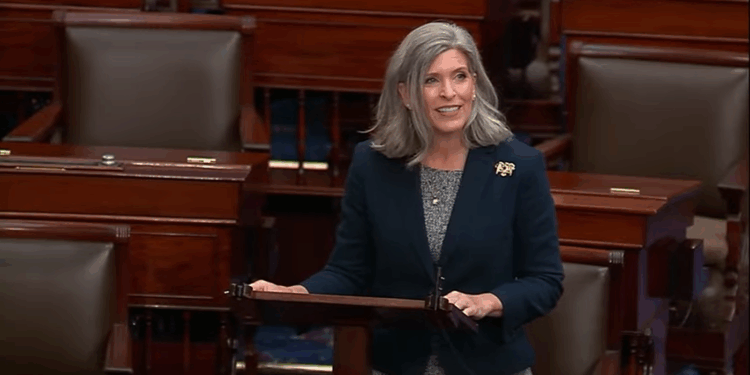Sen. Joni Ernst, R-Iowa, introduced legislation on Thursday that seeks to cut off an existing SNAP loophole that’s allowed users to collectively spend hundreds of millions of dollars at fast-food restaurant chains.
“Fast food franchises are feasting on the taxpayers’ dime,” Ernst told The Federalist. “This McFlurry of abuse cannot be allowed to continue as America’s national debt soars past $38 trillion. It’s time to think outside the bun and restore the SNAP program to its original mission by delivering healthy, instead of happy, meals.”
Known as the McSCUSE Me Act, the proposed bill provides critical reforms to SNAP’s Restaurant Meals Program (RMP). As described by the Department of Agriculture (USDA), the program “is a state option to allow certain SNAP clients, who might not be able to prepare meals for themselves or who do not have permanent housing for storing and preparing food, to be able to buy prepared meals at restaurants with their SNAP benefits.”
The nine states that currently participate in RMP include Arizona, California, Illinois, Maryland, Massachusetts, Michigan, New York, Rhode Island, and Virginia.
According to Ernst’s office, the issue at hand arose after Congress created an exception to SNAP’s “hot food” restriction via RMP in 1977. The goal behind this change, the senator’s team noted, was to allow homeless people who lack access to kitchens to purchase already-prepared meals using SNAP, with eligibility later expanded to include the elderly and disabled, as well as their spouses.
In more recent years, however, RMP has exploded in growth, particularly in California, where — along with the Biden USDA — state officials authorized more than 5,800 restaurants to accept SNAP benefits. Many of these restaurants are notable fast-food chains, including McDonald’s, Pizza Hut, Panda Express, and others, according to Ernst’s office.
New data provided to Ernst by the Trump USDA purportedly shows how, from June 2023-May 2025, $524 million in food stamp payments (aka taxpayer money) were used at fast-food restaurants. The vast majority of this total of these payments came from California, where more than $475 million was used at such dining facilities.
The second-ranked state to use the most SNAP benefits at fast-food restaurants was Arizona ($41.4 million), which was followed by New York ($3.6 million), Michigan ($1.3 million), Rhode Island ($995,900), Massachusetts ($649,000), Illinois ($479,000), Virginia ($308,500) and Maryland ($8,600), respectively.
The McSCUSE Me Act seeks to help rectify this problem by limiting the types of food vendors eligible for participation in the program.
According to the bill, an eligible “retail food store” cannot be “primarily engaged in the sale of quick-service or fast-food items, as determined by the Secretary [of Agriculture].” Such eligible establishments must meet “all State and local food safety and health standards applicable to grocery stores or supermarkets.”
Spouses of individuals eligible for SNAP would “not be eligible to participate in the program,” according to the measure.
SNAP Restaurant Meals Program | Food and Nutrition Service
Mcscuse Me Act by The Federalist
Shawn Fleetwood is a staff writer for The Federalist and a graduate of the University of Mary Washington. He previously served as a state content writer for Convention of States Action and his work has been featured in numerous outlets, including RealClearPolitics, RealClearHealth, and Conservative Review. Follow him on Twitter @ShawnFleetwood
















